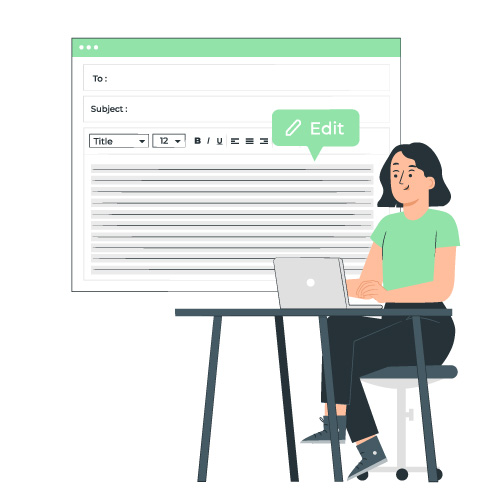I’ve heard it said that the best way to find mistakes in your writing is to publish it. Even the best editors can miss something, and publishers will always have their own tolerances for errors in published works.
I’m fortunate that, in addition to writing, my creative experience also includes working as an editor. This isn’t true for every writer, and some necessarily rely on others to edit their work. There are both advantages and disadvantages to hiring an editor. It’s the same with editing your own work.
When you do your own editing, it’s easy to miss mistakes. This is especially true for those with high reading comprehension skills. Often your mind is trained to make sense of a phrase, sentence, or paragraph that contains errors. This can make it harder to spot those mistakes since your brain is editing them out on the fly. Hiring an editor is an excellent way to avoid this pitfall. Unlike you, your editor hasn’t read and reread your work dozens of times or more until they almost know it by heart. They’re starting fresh and won’t have any expectations to get in the way of their editing. When you edit your own work, it becomes essential to read it as an editor would.
For grammar and spelling errors, that means reading every word carefully. Ask yourself: Is it spelled correctly? Is it a homophone (there, their, they’re)? Is it necessary? Is the sentence properly constructed? Are your punctuation marks appropriate? Reading like this is hard and takes time. Don’t rush it. Take a lot of breaks if you need to.
For higher-level editing, looking at story construction, plot layout, and themes, an editor will often look at your work from the point of view of your readers. You, the author, know what you intended something to mean. But will your readers pick that up? If you’re writing a mystery or thriller, are you dropping tantalizing hints or just telegraphing your plot in advance? If you’re writing science-fiction or fantasy, does your world-building make sense, or will it be too difficult for your readers to understand?

A story editor can help you work out the kinks in a complex plot, suggest ways to rework things to make them flow better, or even help you develop your ideas into a workable outline. If you’re looking at your own work, you need to ask yourself these same questions. Does your story flow well? Are you including too many info dumps or any needless exposition? Are you relying on dialogue to move the plot forward when your characters should be taking actions instead?
A significant downside to hiring an editor is finding the right one. After all, as with writers, no two editors are exactly alike. Look at an editor’s portfolio and determine if the types of work they specialize in align with your writing. An editor who prefers historical non-fiction wouldn’t necessarily be the best choice to edit your 600-page fantasy epic. The wrong editor’s experience may lead them to make suggestions that don’t improve your writing. And when you hire an editor, don’t be afraid to be specific about your needs. You’re paying them, after all. You may as well get the most for your money. Perhaps you need help with your story development, but not your grammar and spelling. Then be sure to say so. Don’t skimp, but also don’t buy what you don’t need.
Whether you hire an editor or edit your own work, remember that it will take time. In my experience, editing my work typically takes as long as writing it did. So, be sure to plan for that. Most editors will offer you a time range for completing their work to help you manage your expectations.
If you’re set on editing your own work, the most helpful tip I can offer is to separate those duties. When you’re writing, just write. Don’t get bogged down in spelling and grammar to the point that you lose your flow. Then, when you’ve finished writing, go back in and look at it as an editor. I’m serious about this. If you use grammar and spelling functions or apps, turn them off. Even autocorrection, if necessary. Finish what you planned on–your page, chapter, or entire story–without the distractions of those little squiggly red lines showing up. That’s worked best for me.
When you turn those functions or apps back on, don’t rely on them to do 100% of the work. They may catch a lot of your errors, but they won’t find them all. This is especially true for words with a lot of homophones. They’re also more likely to overlook missing words. By all means, use them. But don’t do so at the expense of actually combing through your text and finding errors yourself.
Also, a note on editing dialogue: Don’t make it too correct. Almost no one speaks with perfect grammar. Perfect grammar is also relative, depending on your characters. So craft your dialogue the way your character actually speaks. This may include introducing deliberate errors. If your character means to say “gimme,” don’t type out “give me.” The same goes for internal monologues. When you describe what a character is thinking narratively, keep to the same style as their dialogue.
When you finally publish your work, do it with the understanding that there will still be an error or two. Whether it’s 5,000 words or 50,000 words, even the most stringent, attentive editor can miss something. And that’s ok.
